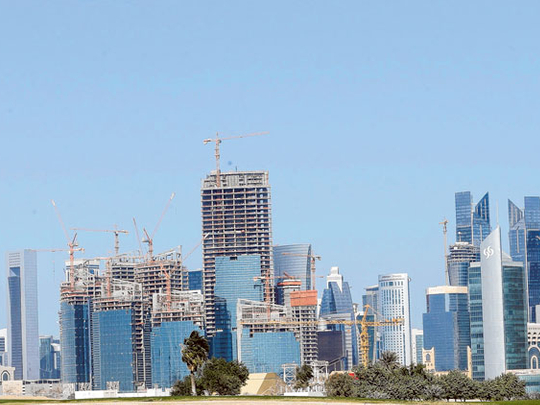
Dubai: Qatar is gearing up to list state assets on its stock market, giving ordinary Qataris a fresh opportunity to invest in their country’s economic success. But it is not clear whether the move will energise the sluggish market.
Qatar Holding, the investment arm of the country’s sovereign wealth fund, said last week that a new $12 billion (Dh44 billion) investment firm would be created, backed by blue-chip assets from the fund.
The new firm would receive $3 billion of assets from the fund, which holds stakes in high-profile global firms such as German sports car maker Porsche and British bank Barclays. It would raise a similar amount through an initial public offer of shares on the Qatar Exchange, while a further $6 billion would be raised at a later date.
“You name it - shares, bonds, real estate, private equity. We will look at every sector in every country around the world,” Hussain Al Abdullah, Qatar Holding’s vice-chairman, said of the scope of the new firm.
Its listing would be one of the biggest IPOs conducted in the Middle East. In addition, state-owned Qatar Petroleum has been considering whether to list some of its subsidiaries in Qatar, sources familiar with the matter said, while officials did not comment.
Local media have also reported that the government may launch a huge, publicly traded infrastructure company to hold some of its investments in the $140 billion worth of projects which it plans over the next decade, as it prepares to host the 2022 Fifa World Cup.
In theory, these IPOs could be a shot in the arm for the stock market, increasing trading activity, attracting foreign money to Qatar and helping the country develop as a regional financial centre.
But much will depend on how the government structures the IPOs, and in particular there is concern that only a small fraction of shares in the company may become available to trade - limited liquidity in major Qatari stocks has been a drawback of the market, analysts say.
“If they list assets at a significant discount to compensate for tighter liquidity going forward, you can get access to projects you wouldn’t usually get,” said Amer Khan, asset manager at Dubai’s Shuaa Asset Management.
“But liquidity is a huge risk. Nobody wants to get in what you can’t get out of.”
LIQUIDITY
Qatar’s market could certainly do with a shot in the arm. Its main index is up just 1.6 per cent so far this year, making it the worst-performing market in the six-country Gulf Cooperation Council.
Some money has flowed from Qatar to more active markets in the region such as Dubai, or the much larger and deeper Saudi market. Delays to some of the infrastructure projects, and concern over whether listed Qatari companies are large enough to benefit much from them, have weighed on the local market.
Whether the big new IPOs change this picture will depend on several factors. One is the detailed structure of the $12 billion investment firm, which has not been disclosed; it is unclear, for example, exactly what assets the new firm will be given and on what terms.
“If they want this IPO to be successful, they have to be more precise or they could have issues,” said Sebastien Henin, portfolio manager at Abu Dhabi’s The National Investor.
Also, listed Qatari companies usually have small free floats of shares, with the government holding much of the stake; the state owns 70 per cent of Industries Qatar, currently Doha’s largest listed firm, and 43 per cent stake of Qatar National Bank, the second largest firm by market capitalisation.
This restricts trading volumes. Doha’s daily turnover this year averages about 4 million shares, compared to 200 million shares in Dubai.
If the government adopts a similar model with the newly listed firms, investor interest could suffer.
“For Qatar companies, the rights for minority shareholders are always a concern,” said Khan. “If it lists only 10 to 15 per cent of the company, the liquidity could dry up pretty fast.”
Yassir Mckee, wealth manager at Doha’s Al Rayan Financial Brokerage, said the new listings would probably win the confidence of investors because of their government backing, but they might drain liquidity from other stocks in the market.
“IPOs are always a healthy thing and will increase liquidity in the market - sometimes it’s permanent, and other times not so much.”
Foreign ownership limits are another potential threat to the success of the new listings. They are traditionally high in Qatar, and are a major reason that international index compiler MSCI has decided not to upgrade the country to emerging market status.
The limits for both Industries Qatar and Qatar National Bank are about 12 per cent; most other stocks are around 20 per cent. It is not clear what limits will be imposed for the newly listed firms, but authorities will face a dilemma in deciding them.
If the government wants to ensure that ordinary Qataris can have major shareholdings in the new firms, it may restrict foreign ownership tightly. But if it does so, it will need to abandon hopes of the listings attracting big foreign fund inflows into the country.











